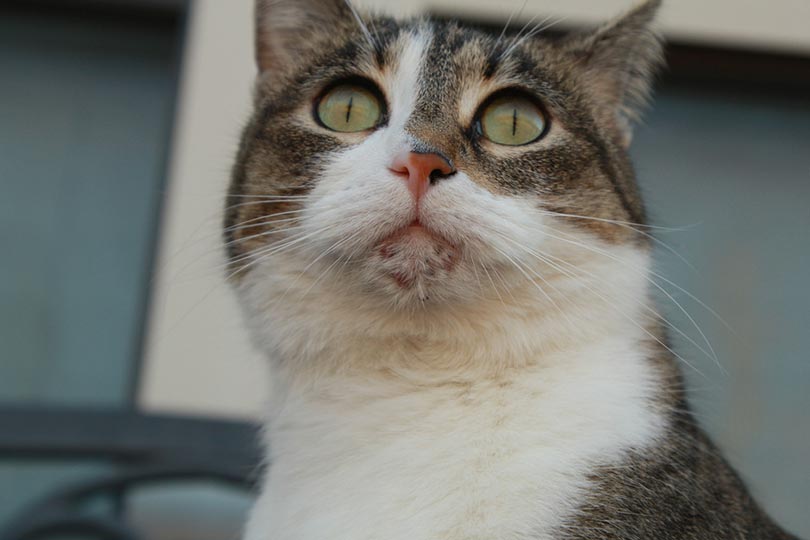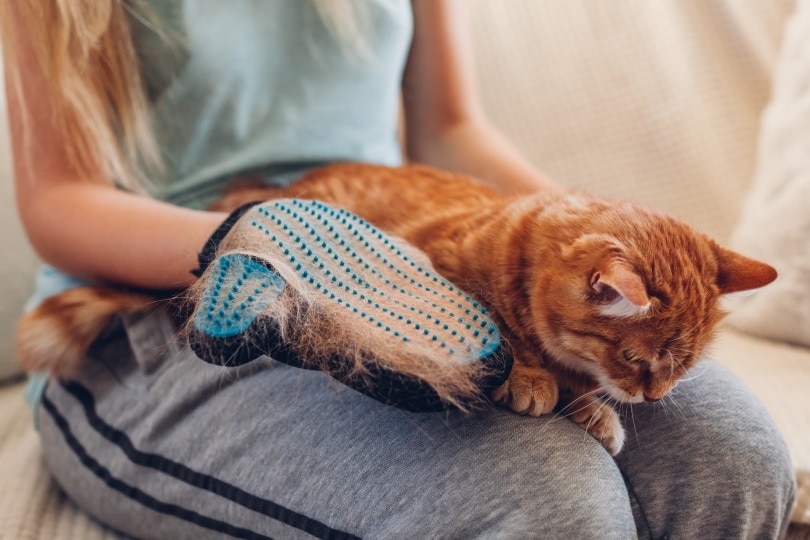Does Rosemary Kill Fleas? Vet Approved Tips On Safety & Effectiveness
By Jordyn Alger
Updated on
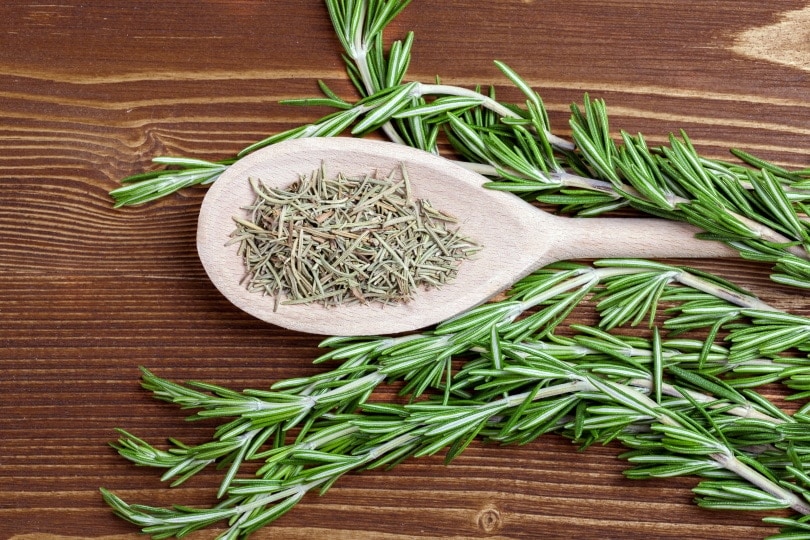
Flea infestations are a common and annoying problem for pet owners. Whether your pet goes outdoors or not, the pests often seem to find their way to your pet’s fur. Topical treatments and oral products prescribed by veterinarians are the most effective at eradicating fleas in dogs and cats. You may have considered using rosemary if you are interested in more natural methods. However, while rosemary may repel fleas, there is not much evidence to suggest that it can eradicate them.
In this article, we’ll discuss rosemary’s effectiveness as a flea treatment. We’ll also discuss the potential risks of using rosemary and preventative measures that can keep fleas away from your home.
How Effective Is Rosemary at Killing Fleas?
There is little evidence to suggest that rosemary is capable of killing fleas. Since rosemary cannot kill fleas, it should not be used as a flea treatment if an infestation is already present. Instead, consult your vet about which treatment is recommended for your pet. Rosemary has a strong scent and may help repel and therefore prevent fleas.
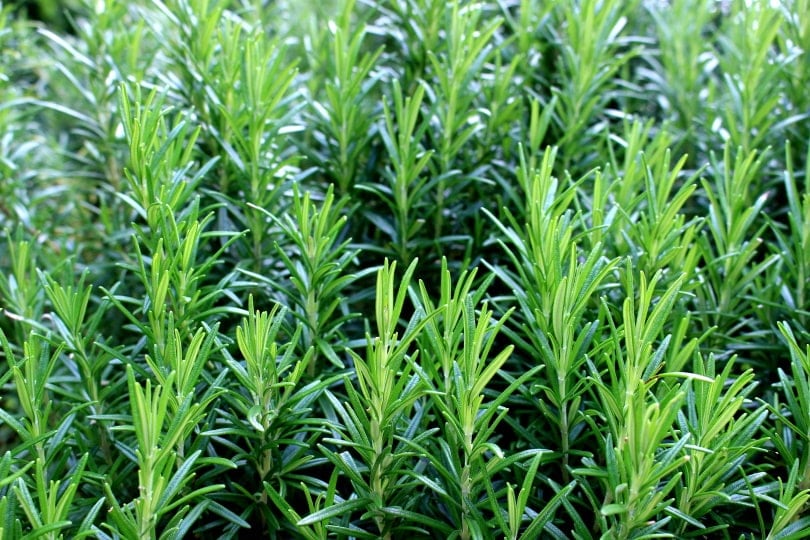
Is Rosemary Safe for Use with Dogs and Cats?
According to the ASPCA, rosemary is non-toxic for cats and dogs. However, when rosemary is an essential oil, it can pose a significant risk to your pet. Our pets cannot process essential oils the same way we do since their livers cannot metabolize the products properly. Since essential oils can be absorbed through ingestion as well as skin contact, it is highly recommended that you avoid using these products near your pet since dogs and cats can become poisoned by these oils.
- Citrus
- Cinnamon
- Pennyroyal
- Pine
- Peppermint
- Tea tree
- Sweet birch
- Wintergreen
- Ylang ylang
Although rosemary oil is not on the list of the most dangerous essential oils, that does not mean it is safe. Any essential oil can potentially harm your pet, especially if you have a cat. Cats regularly groom their coats, and if an essential oil is placed on their skin, they will lick it.
Signs of Essential Oil Poisoning
- Weakness or lethargy
- Pawing at the face, particularly around the mouth
- Redness of the lips, gums, or tongue
- Burns around the mouth
- Drooling
- Struggling to breathe
- Walking with an uncoordinated gait
- Vomiting
- Muscle tremors
If you suspect that your pet has absorbed or ingested essential oils, reach out to your vet right away.
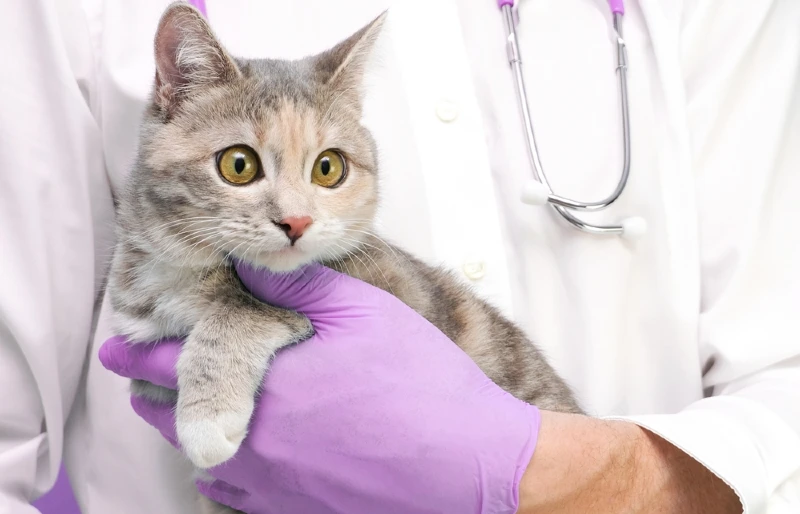
 The Importance of Flea Prevention
The Importance of Flea Prevention
Fleas may not seem like a big deal, especially if your pet spends most of its life indoors. But the truth is, the little pests have a much larger impact than you might expect. Fleas are ectoparasites, which means they live outside of the host animal rather than inside.
They feed off your pet’s blood and are a common cause of skin disease.
- Dermatitis
- Allergies – some pets are allergic to flea saliva
- Infection
- Anemia-young or frail animals may become anemic due to the blood loss
Even worse, fleas can carry and spread diseases to your pet, further impacting their health.
How to Prevent Flea Infestations
While veterinary treatments and professional pest control techniques are necessary to eradicate a flea infestation, it’s always best to prevent the problem in the first place. Using a regular veterinary-prescribed flea treatment for your pet as a preventative is advisable, and there are also ways to prevent fleas from invading your home.
- Keep your lawn mowed
- Ensure any shrubbery is trimmed short
- Cover open spaces that wild animals may want to nest in
- Do not leave food outdoors for strays or wild animals
There are natural methods to maintain the inside of your home as well.
- Vacuum the home frequently, including furniture, baseboards, and pet beds
- Change vacuum bags often and outside of the home
- Wash your pet’s bedding, toys, and other objects in hot water regularly
If a flea infestation has grown severe enough that you cannot get it under control on your own, you should hire a professional exterminator.
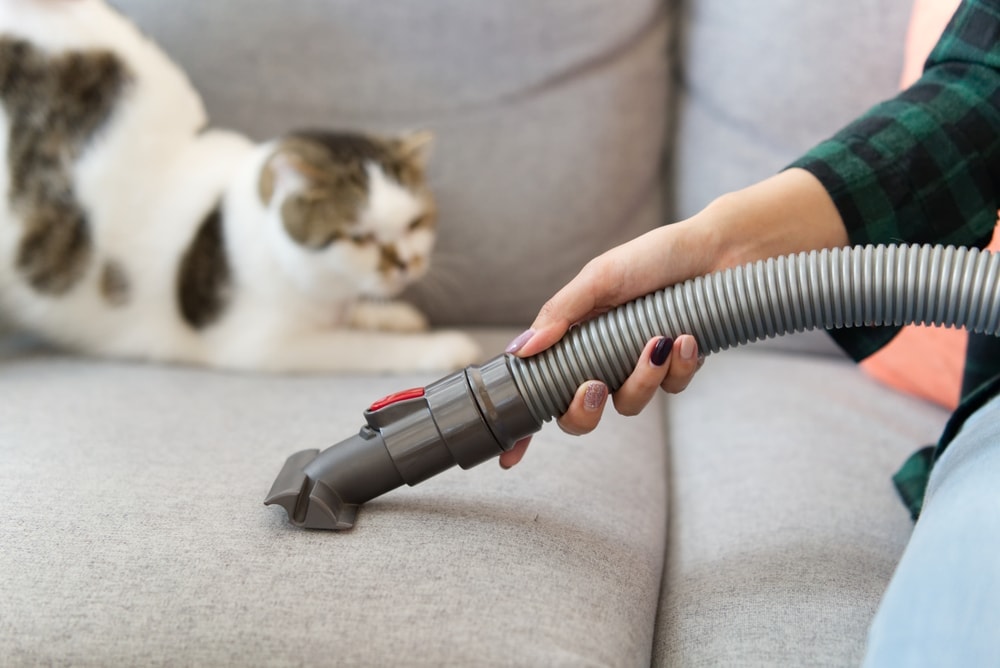
Final Thoughts
Although natural flea treatments such as rosemary are tempting to use, they’re not proven to work, and some can harm your pet. Also, essential oils are not safe to use around dogs or cats, and although fresh rosemary isn’t harmful, rosemary essential oil can be. Sticking to vet-approved flea treatments is generally best for infestations and preventative measures can reduce the likelihood of fleas invading your home and pets. By keeping the fleas away, you can spend less time battling infestations and more time playing with your pet.
Featured Image Credit: Alim Yakubov, Shutterstock




